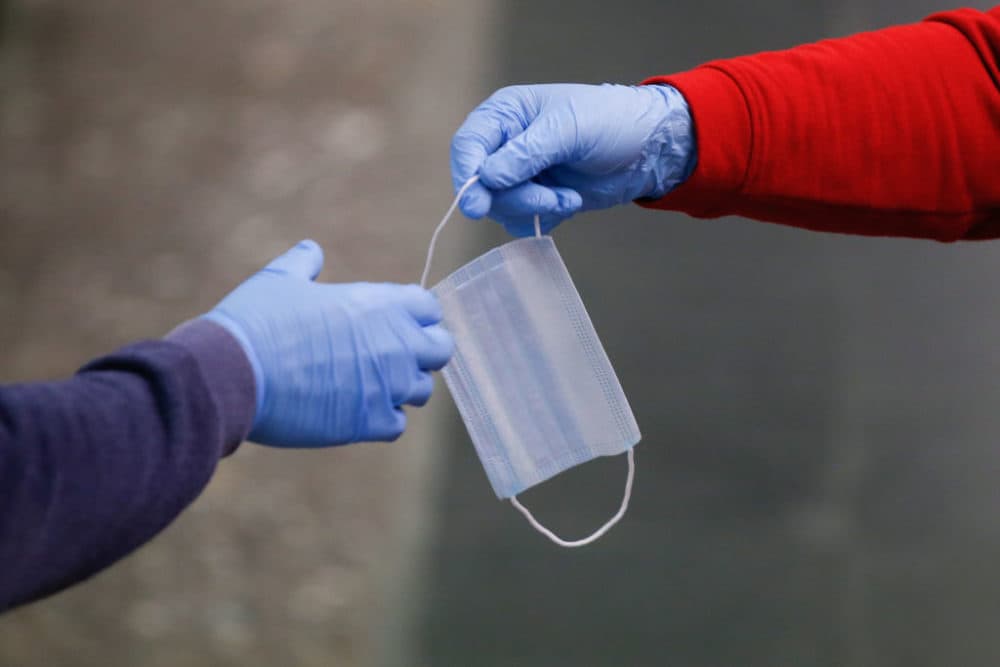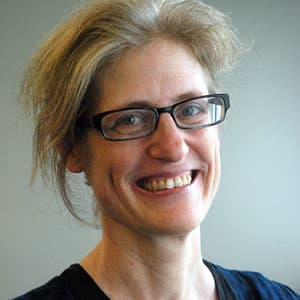Advertisement
Coronavirus Coverage
Why Scientists Are Calling For An Investigation Into Origin Of Pandemic
Resume
Prominent local scientists are joining a group of international colleagues who are calling for a thorough investigation to determine the origin of the coronavirus pandemic.
The group includes Marc Lipsitch, a professor of epidemiology at the Harvard T. H. Chan School of Public Health.
He spoke with WBUR's Weekend Edition about signing the letter published in the journal Science.
On writing the letter to raise awareness of the concerns of many in the scientific community:
"There just aren't any answers yet, one way or the other, about how the coronavirus that's now ravaging the world began. And we are not taking the position that this evidence is stronger in favor of one or another hypothesis. I think we probably even have varying views on that. But what we are saying is that the existing evidence has not ruled out a laboratory origin, nor has it ruled out a natural origin. And there's really no positive evidence, either. It's just pretty much a lack of evidence right now. And we're calling for this to be resolved because it's an important question."
On his concerns about the investigation headed by the World Health Organization:
"That investigation almost exclusively focused on natural origins, describing the possibility of a lab accident as a conspiracy theory. It devoted about 100 pages to the natural origin hypothesis and only a few pages to the alternative that it had something to do with the laboratory. And even the director-general of the World Health Organization, after that report was released, said that it was not a final answer to the question and that more work needed to be done."
On how establishing the origin will help the world:
"Understanding why it happened is essential, for people to understand what's just hit them and also in order to make sure that we reduce the probability ... that it happens again in the same way. And we should be working very hard both to enhance lab safety and to prevent naturally occurring pandemics because they both are threats. But if this did come from a laboratory, then that really has implications for the kind of work that we should be doing and the kind of safeguards that need to be in place if we're going to do that work. And if it came from a natural reservoir ... this is going to be incredibly instructive to the very people who are saying this is a natural pandemic to know how it worked."
On the issue of the political polarization about the origin of the pandemic:
"This is not a U.S. issue, particularly. It has been incredibly politicized. And I think that's unfortunate, and it's been politicized in many different directions in terms of what kind of research we're supporting… But the question of where this came from? It may be that we just aren’t ever going to find the evidence. But we have to try. And I think the main thing to do is to have a committee that has as much access as possible and has wider representation from disinterested parties as possible. And that will help to address the issue that in some places it's really a politicized question."
On whether epidemiology is always intertwined with the phenomenon of people dividing into camps fueled by political intensity:
"I think when it touches on questions that involve so many people, the risks of politicization get greater. And when it touches especially on something that has just dominated all of our lives globally for the last year, I think it's a high-risk situation. I think as scientists, our goal should be, and has been among those who wrote this letter, to try to say that this has political implications, but it's a question of fact. It may be an answerable question of fact or it may not be answerable, but we should try to answer it. And the answer should not be governed by what we want to hear or what we wish was true, but by where the facts point."
On the decision by the writers to condemn the anti-Asian sentiment provoked by the initial outbreak in China:
"That's an example of how we were trying not to have our words misused. And I would hope that whatever we had said, no one would take our letter as a reason to enhance anti-Asian prejudice, or worse. But the nature of the world is such that we give a sort of extra precaution to say that in case anyone is misunderstanding, we are not supporting that in any way and we are opposed to it. We're trying to set up a scientific question. But I think that's a perfect example of the kind of thing where scientific discussion or scientific positions can be misused by people to support hate."
This segment aired on May 16, 2021.

